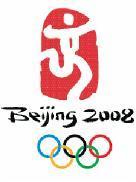
DENVER (AP):
STICKING WITH a stance its taken all along, the United States Olympic Committee (USOC) reiterated that an American boycott of the Beijing Olympics is not an option.
"Put together a ranking of the worst ideas ever conceived and 'Olympic boycott' would be at the top of that list," USOC spokesman Darryl Seibel said on Monday.
"Other than unnecessarily and unfairly punishing athletes, Olympic boycotts accomplish absolutely nothing."
Calls for a boycott date to 2006, and though none has been heeded the recent violence in Tibet has brought a new wave of protests over China's handling of the situation.
Opposed to idea
The head of the European Olympic Committees, Patrick Hickey, said on Monday that European Union nations were opposed to the idea of a boycott, and Seibel said the USOC agreed.
"You can be certain the United States Olympic team will be in Beijing in August," he said. "As with every Olympic Games, we will go as guests of the host nation, appreciative of all they are doing to welcome athletes and visitors from around the world. We will also go and compete in a manner that makes our country proud."
The US boycotted the Moscow Olympics in 1980 in protest at the Soviet Union's occupation of Afghanistan.
That was a low point for the modern Olympics, although most view the next Olympics, in Los Angeles in 1984, as the key turning point.
With the tragedy of Munich, the financial disaster of Montreal and the Moscow boycott still fresh, nobody wanted to bid for the 1984 Olympics. Los Angeles did, however, and with the Soviet Union leading a boycott of Communist nations as payback, it was China's refusal to join that helped make the 1984 Games a moneymaker and turn the Olympics into a modern-day success.
No politics
USOC chairman Peter Ueberroth has long credited China for helping lead the resurgence of the Olympics. Last week, Ueberroth, who was key in staging the 1984 Games, re-emphasized his belief that the games not be politicised.
"Boycotts do one thing very well and only one thing: They punish athletes," he said.
Shaped by Ueberroth's beliefs, the USOC's stance is that the Olympics will serve as a catalyst for further progress in China and open up the country for the world to see.
"More good will result from the Olympic Games being held in China than would ever be possible otherwise," Seibel said. "That's true for any country that earns the honour of hosting the games."

